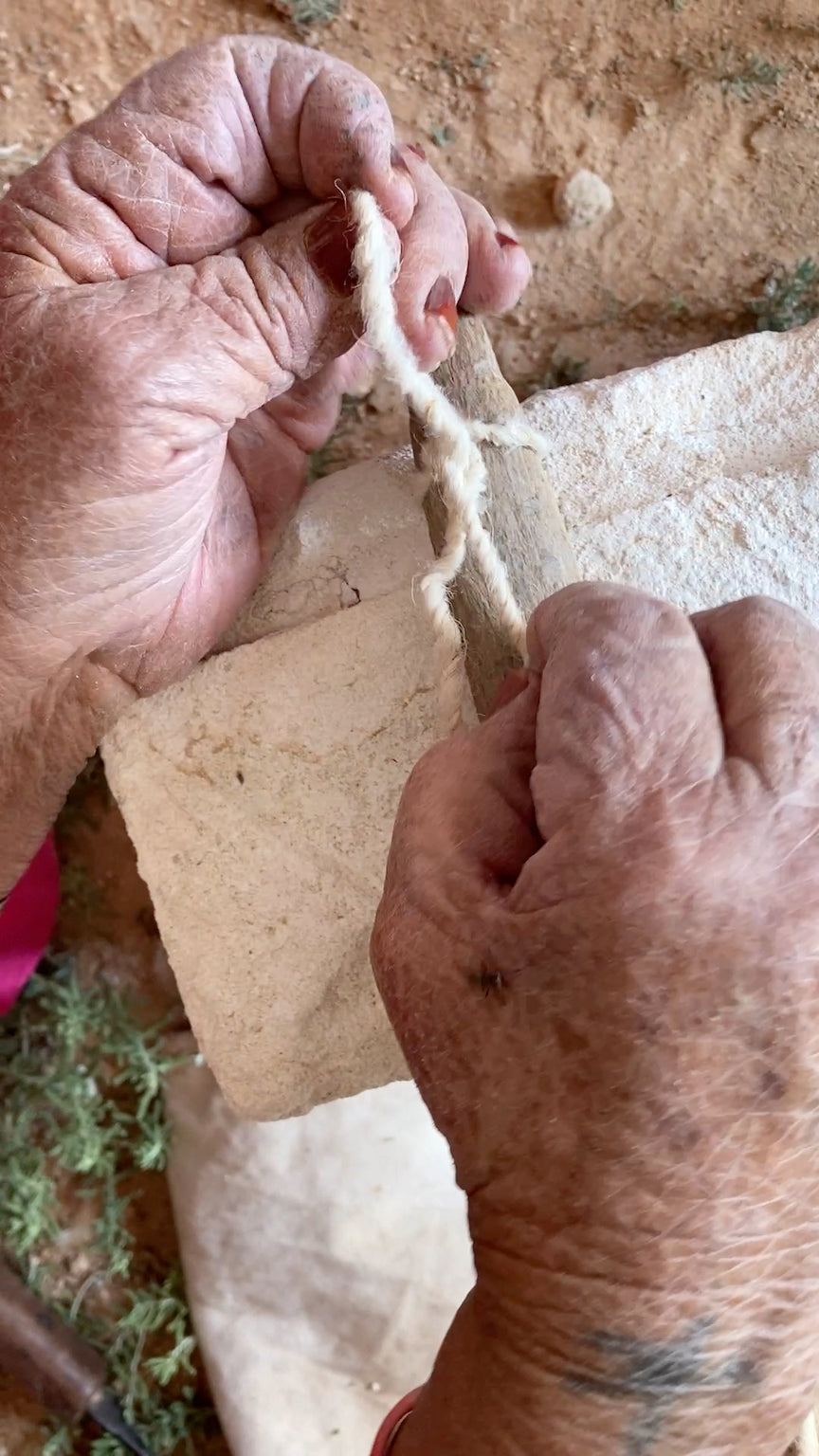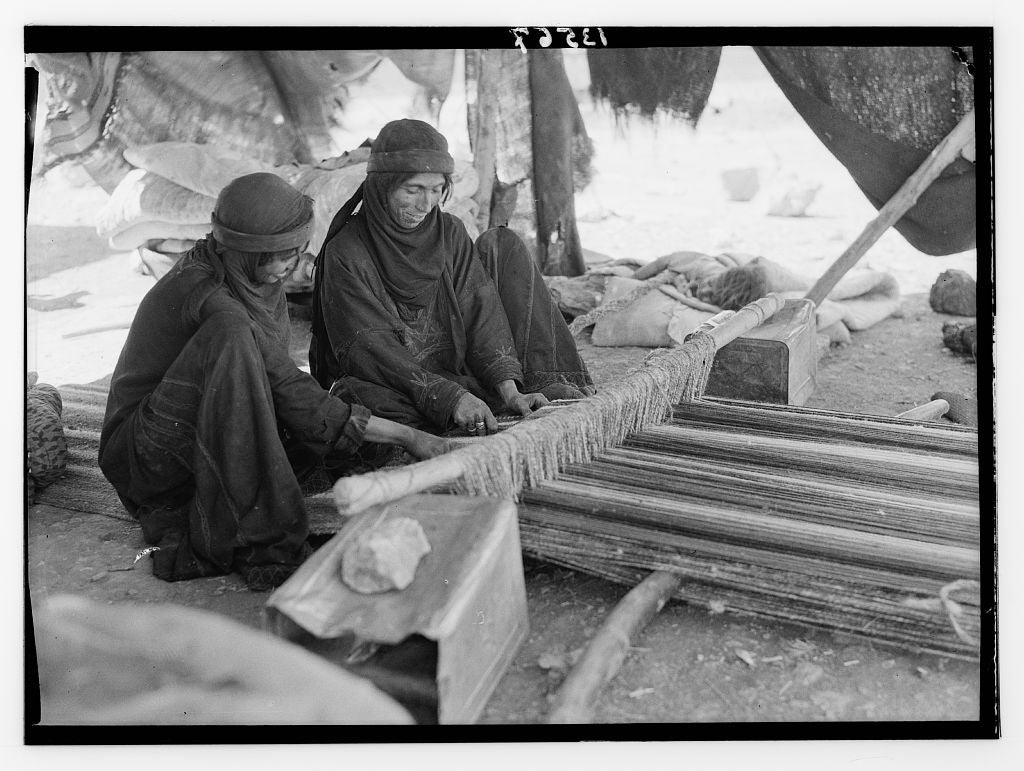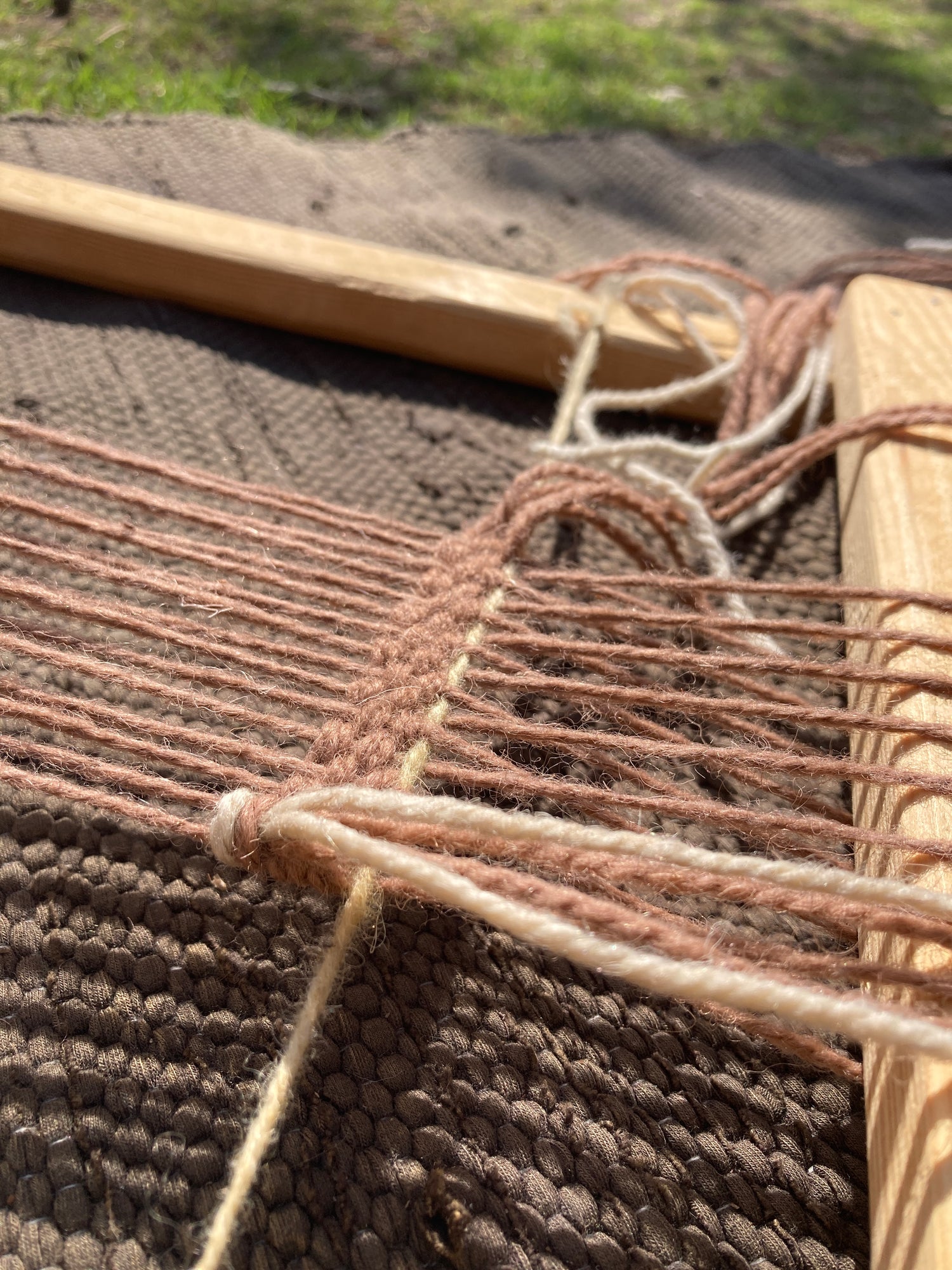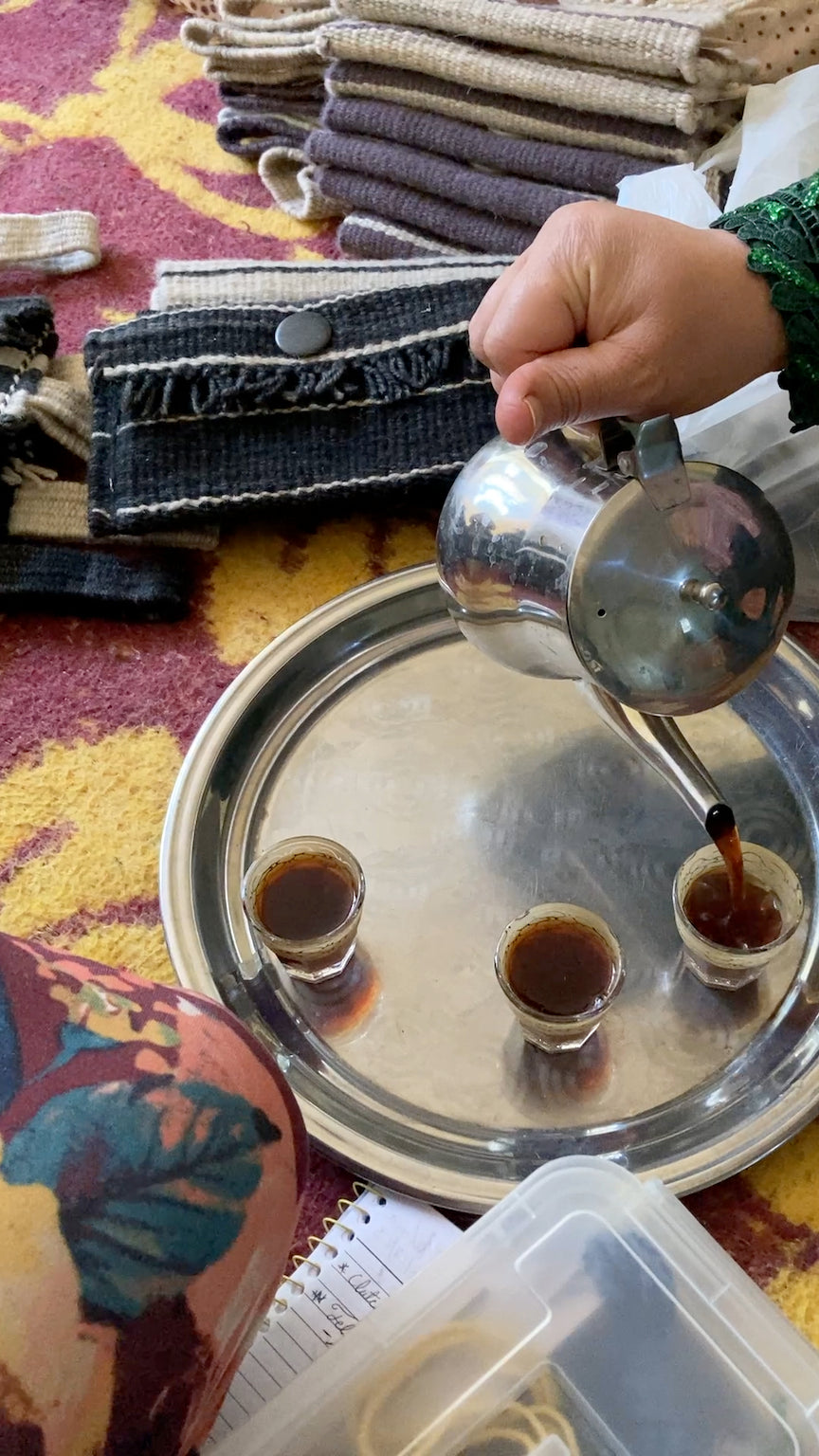
During our first few years here in North Africa, neighbor women frequently asked us if we had any skills we could teach them that would allow them to earn an income from their homes. In 2018, we realized that although we didn’t have those skills, we had the ability to acquire them.
Having disposable income allowed us to buy materials and experiment without fear that we wouldn’t be able to buy groceries or pay the water bill. As native English speakers with internet access, we were able to learn almost anything we wanted to—from handicrafts to marketing to how to sell products online. Our neighbor women didn’t have any of those opportunities.
Woven With Hope was conceived out of that disparity.

We knew we wanted to empower our neighbor women through employment opportunities, but what craft should we pursue? They were willing to learn almost anything and the options seemed overwhelming so we turned to their heritage for inspiration.
Many Arabs across North Africa have traditionally been nomadic. They traveled along the coast and into the desert with their herds, carrying their homes and possessions with them. These woolen, tent-homes and all the cushions, rugs, and blankets they contained were woven by the women of the family. As the tribes began to settle and move into permanent houses, they also began to purchase factory-made goods, and many of the women stopped weaving. Over the past few generations this traditional skill, which had been passed down for centuries, was gradually lost to the women in our area.

How do you revive a cultural tradition that has been completely lost? We took it one tiny step at a time. We found some locally produced yarn in the nearby market, built some simple, wooden frame looms, and asked a couple neighbor women if they wanted to experiment with us.
Back then, we knew nothing about weaving and we knew even less about marketing handicrafts. Our Arab neighbor women wanted to learn a craft which would enable them to earn an income from home, but they lacked the opportunity to do so on their own. Neither of us had the knowledge we needed, but unlike our neighbors, we had access to it.

As we dove into this project, we were overwhelmed by the encouragement we received. Even though our first fumbling attempts to train and equip a couple of neighbor women were rough, those ladies remained incredibly patient, kind, and flexible with us.
Each of our products takes several hours of work to produce. Everything is done completely by hand, and the finishing work of tying off and tucking in warp-thread ends can be very tedious. After all of that work, our first products were still far from perfect, but our first customers were gracious and encouraged us to continue. They bought everything those women made, even paying more than we asked.

At the beginning, we didn’t even have a name for this project, much less an idea of where we were headed. We’ve grown organically over the years, adding several more weavers and expanding into handmade leather goods, working with a few local men. We officially launched Woven With Hope in 2020, and since then we have been continually blessed by the encouragement of our Arab neighbors and the support of our customers. We would never have made it this far without both of those elements.
